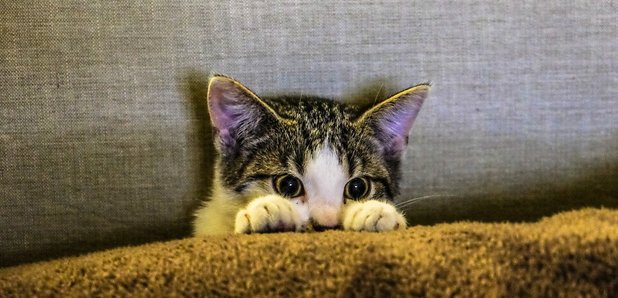
Richard Spurr 1am - 4am
3 December 2017, 01:12 | Updated: 3 December 2017, 01:20

The financial giant Morgan Stanley is frightened of Jeremy Corbyn.
They said that Uncle Jezza coming to power would be a bigger threat to investors than Brexit.
They think that he would set about changing the way the free-market economy works.
Why would he do a thing like that? We are all doing so well out of it.
And by “well” I mean “badly”.
Multi-national corporations are draining the country of its wealth, decimating traditional, local business and squirreling that wealth away at the centre of legal labyrinths on Pacific islands where the tax man can't get it.
The result is that where little businesses used to pay tax and the money was used to fund the health service and the police, now we find that trillions of pounds are held off-shore where it does no good to anyone except those dozen or so individuals who vie for bragging rights to be the richest person on earth.
Why would a politician elected by the people want to change that?
Corbyn hit back at Morgan Stanley saying that organisations like them are more like gamblers than investors and they are right to regard him as a threat.
He said he wants to transform a rigged economy that profited speculators at the expense of ordinary people.
Ordinary people used to earn about one twentieth the amount that the CEO of the company they worked for made.
That was in the 1960's. Today, CEOs earn not 20 times the average person working for them, they earn almost 400 times that amount.
UK bosses of our biggest companies make in two and a half days what it takes the average worker to earn in a year.
That's the way the free-market economy has worked for the many – not at all.
The result of that, and the tax avoidance that is endemic to corporate culture, is that the police do not have the money to investigate crimes, the NHS is cancelling operations, schools are asking parents to supply books and the council can't keep the street lights on.
The Institute of Fiscal Studies says that we are looking at 50 years of stagnation of living standards since the financial crash caused by the banks.
They produced a report that they say makes grim reading.
Not to the people running the banks it doesn't. They weren't touched by the catastrophe they caused at all. In fact, they prospered. The bumper pay-outs on the top floors of the world’s biggest banks remain unchanged since the crash.
The people who run the big banks made $20m a year before the crash and they are making $20m a year today.
Their remuneration has not been affected at all.
Jeremy Corbyn strikes fear into their hearts because he might rebalance the economy to benefit the many.
Which of his manifesto pledges might concern them the most?
Not the increase in the tax rate for those on over £123,000. If you are earning £20m a year it is unlikely that you will be troubled much by tax. That's what the accounting department is there to help you avoid.
It could be the pledge to prevent businesses that pay their top people over 20 times their average worker from bidding for government accounts.
That work is probably easy money, and the banks hate losing easy money.
The thing they are likely to fear the most is the Robin Hood Tax.
The tax on financial transactions would see 0.5 per cent of the value of bonds and derivatives going to the Treasury, which would raise about £26bn.
That is a lot of money, but to put that into perspective, bankers have given themselves over £100bn in bonuses on top of their gargantuan salaries since the financial crisis first hit.
They are crying foul at the thought of that tax happening because if they give back a proportion of their profits to the people that saved them from their greed and stupidity, it would be less that they could award themselves as bonuses for a job well done.
I would imagine that frightens them more than anything.